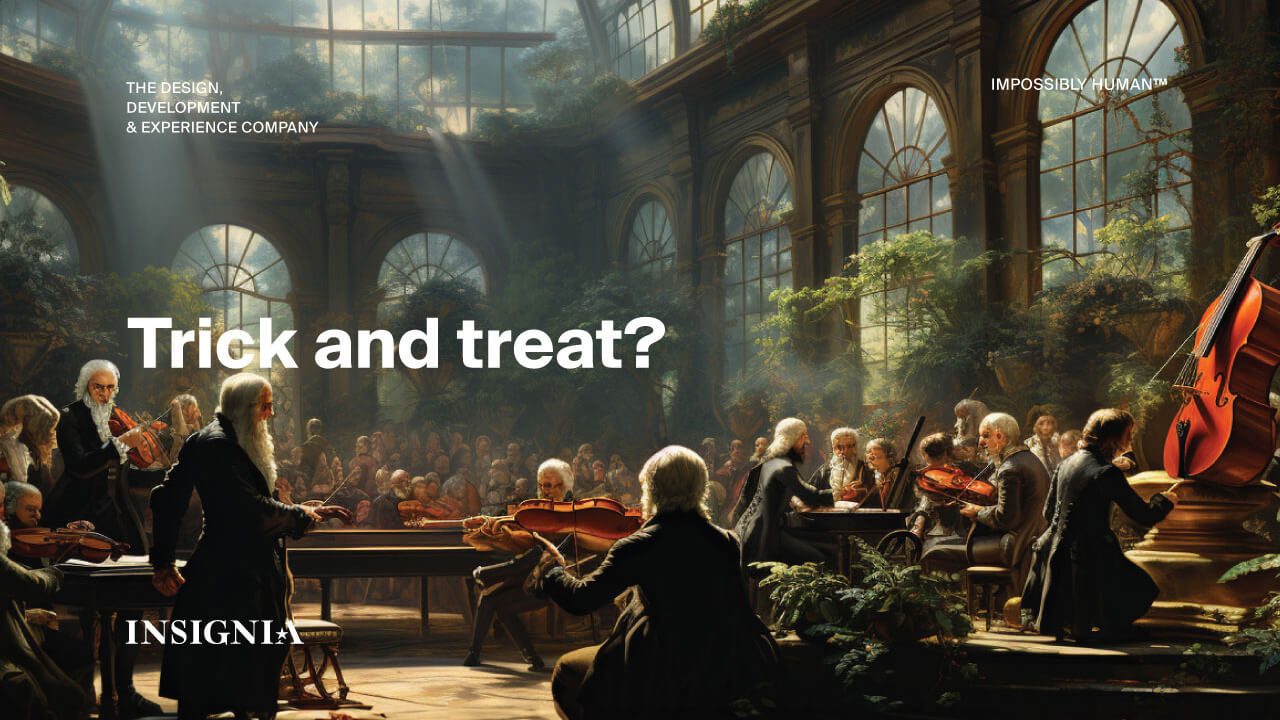While the subject might initially appear seasonally themed, our focus is not on handcrafted jack-o’-lanterns or ensuring an adequate supply of chocolate for the local children.
This All Hallow’s Eve, our thoughts center on AI’s advanced capability to analyze the platinum-plated vocal cords of pop stars and scores by the world’s great composers, then generate music in their once-inimitable styles.
What a trick.
Setting intellectual property discussions to one side, the technology’s proficiency in crafting music rooted in historical melodies is undeniably remarkable.
Moreover, in relation to hospitality, the implications for culturally immersive experiences are as sweet as candy on Halloween Night.
Consider the Renaissance composer Antonio Vivaldi.
Imagine traveling to Venice, touring the San Giovanni in Bragora church, Ospedale della Pietà and other sites connected to the Maestro’s life, and being able to augment your journey not just by listening to ‘The Four Seasons’, but by using your hotel’s afternoon AI workshop to develop Vivaldi’s ‘Fifth Season’ (within the space of an hour), through AI analysis of his musical oeuvre.
Imagine equally interactive and creative hospitality offerings in Vienna, where you could complete Schubert’s unfinished Symphony No. 8, or Wagner’s Symphony in E Major in Leipzig.
And now take into account the fact that your AI generated masterpiece will have company. That guests at such hospitality destinations could share and assess their own and each other’s interpretations before debating their merits.
We may not be experts in music, but we are sure that those working in the Arts will seek to develop more immersive AI-driven experiences around the doyens of culture. From writing your own murder mystery in Agatha Christie’s favourite Room 411 at Istanbul’s Pera Palace to silk screening your own Marilyn over a weekend at The Chelsea in New York.
Because as Andy Warhol once said: “Being good in business is the most fascinating kind of art.”
